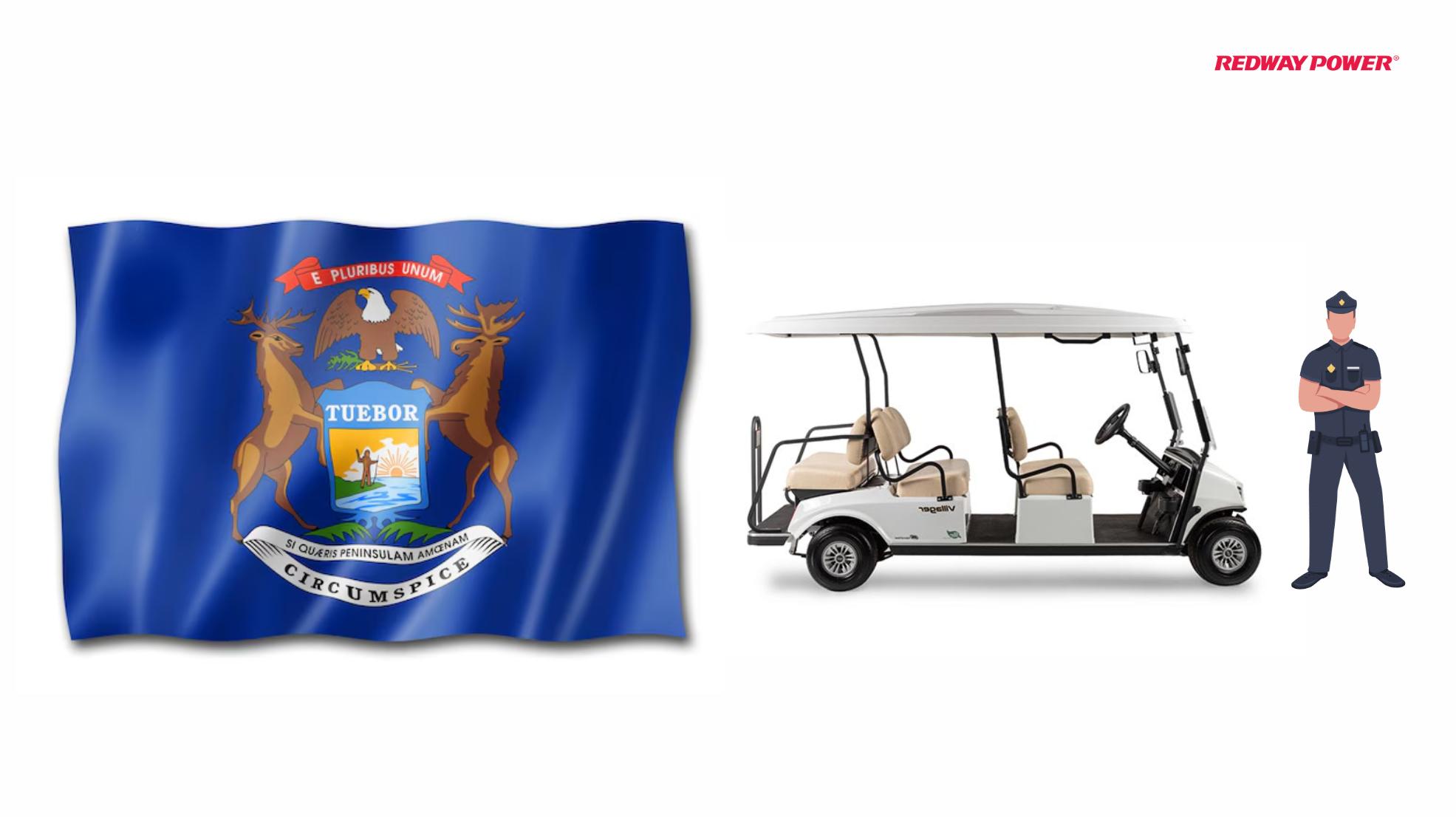Making a golf cart street legal in Michigan requires compliance with state and local regulations, including safety equipment, operator age, speed limits, and road restrictions. Properly outfitted carts can operate on designated local streets safely, while meeting both municipal and federal standards for Low-Speed Vehicles (LSVs), ensuring legal use and enhanced road safety.
How Does Michigan Law Regulate Golf Carts on Public Roads?
Michigan allows golf carts on public roads in municipalities with populations under 30,000, provided local ordinances permit it. Cities and townships can authorize cart operation on streets with speed limits of 30 MPH or lower. Operators must obey traffic laws, maintain proper safety equipment, and follow local regulations.
| Population Limit | Allowed Streets | Speed Limit |
|---|---|---|
| 30,000 or less | Designated local streets | 30 MPH or lower |
What Equipment Is Required for a Golf Cart to Be Street Legal?
Street-legal golf carts in Michigan must include headlights, taillights, brake lights, turn signals, mirrors, a windshield, and seat belts. These features ensure safety for both operators and pedestrians. The cart must also pass local inspections to confirm compliance.
Wholesale lithium golf cart batteries with 10-year life? Check here.
| Equipment | Requirement |
|---|---|
| Headlamps | At least 2 |
| Tail Lamp | At least 1 |
| Stop Lamp | At least 1 |
| Turn Signals | Required |
| Windshield | Required |
| Seat Belts | Required |
| Mirrors | At least 1 exterior mirror |
Are There Age and Licensing Requirements for Golf Cart Operators?
Yes. Operators must be at least 16 years old and hold a valid driver’s license. These requirements ensure drivers possess the skills and knowledge necessary for safe public road use.
| Requirement | Details |
|---|---|
| Minimum Age | 16 years |
| Driver’s License | Required |
What Safety Features Must Be Included in Street-Legal Golf Carts?
Street-legal golf carts require functioning lights, mirrors, seat belts, and a reliable braking system. These safety features reduce the risk of accidents and ensure compliance with both local and federal regulations.
Want OEM lithium forklift batteries at wholesale prices? Check here.
| Safety Feature | Description |
|---|---|
| Seat Belts | Must be present for all passengers |
| Lights | Headlights and taillights required |
| Mirrors | At least one exterior mirror |
| Braking System | Functional brakes required |
Are Insurance Requirements Mandatory for Golf Cart Operators?
Michigan does not mandate no-fault auto insurance for golf carts. However, liability insurance is highly recommended to protect against damages or injuries that may occur during operation. Many municipalities may require proof of coverage for registration.
| Insurance Type | Requirement |
|---|---|
| No-Fault Insurance | Not required |
| Liability Insurance | Recommended |
Where Can Golf Carts Legally Be Driven in Michigan?
Golf carts are allowed only on streets designated by local ordinances. They cannot operate on highways or roads with speed limits over 30 MPH except for crossing at designated points. Nighttime operation is prohibited unless proper lighting is installed.
| Location Type | Allowed Usage |
|---|---|
| Local Streets | Allowed if designated by ordinance |
| Highways | Only when crossing |
| Nighttime | Not allowed |
How Can Golf Carts Be Converted to Low-Speed Vehicles (LSVs)?
To operate more broadly, a golf cart can be converted into an LSV. This requires meeting federal safety standards, including headlamps, tail lamps, turn signals, mirrors, seat belts, VIN, brakes, horn, and windshield. LSVs can travel up to 25 MPH on roads with speed limits of 35 MPH and require registration, title, and insurance.
| Feature | Golf Cart (Local Ordinance) | LSV (Federal Standard) |
|---|---|---|
| Maximum Speed | 15 mph | 20-25 mph |
| Allowed Road Limit | 30 mph or less | 35 mph or less |
| Operation Hours | Daylight only | No restrictions |
| Registration & VIN | Often not required | Required |
| Insurance | May be required locally | Required |
| Safety Equipment | Variable by ordinance | Mandatory |
Redway Expert Views
Ensuring golf carts meet street-legal requirements in Michigan is essential for both safety and compliance,” says a Redway Battery expert. “Operators must understand local and state regulations, particularly when municipalities adopt varying ordinances. Utilizing high-quality, certified components, like Redway Battery packs, can improve safety, performance, and reliability for every street-legal golf cart.”
Conclusion
Street-legal golf carts in Michigan require compliance with local ordinances, age and licensing regulations, safety equipment, and optional liability insurance. For broader road access, conversion to LSVs is required. Using reliable components, such as Redway Battery packs, ensures performance and safety, allowing operators to enjoy convenient and legal transportation within the state.
Frequently Asked Questions
What equipment is necessary for a golf cart to be street legal?
Headlights, taillights, brake lights, turn signals, mirrors, seat belts, and a windshield are required. Additional equipment may vary by municipality.
Do I need a driver’s license to operate a golf cart in Michigan?
Yes, operators must be at least 16 years old and hold a valid driver’s license.
Where can I legally drive my golf cart in Michigan?
Golf carts can operate only on streets designated by local ordinances with speed limits of 30 MPH or lower. Highways and nighttime driving are restricted.
Is insurance required for operating a golf cart?
Liability insurance is recommended and often required locally, though state law does not mandate no-fault coverage.
Can I convert my golf cart to an LSV for broader use?
Yes, LSV conversion allows operation on roads with speed limits up to 35 MPH and requires safety equipment, VIN, registration, and insurance.
Redway Battery’s advanced LiFePO4 solutions ensure that both local ordinance-compliant golf carts and LSVs maintain high performance, reliability, and safety on Michigan roads.






